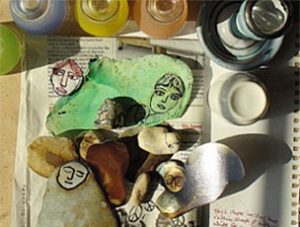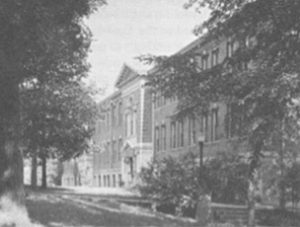
Engaging the Western World: Engaged Buddhism in America
The role of Buddhism in America is evolving towards being more visible and pertinent in modern times. In an age where life is becoming ever more demanding, individuals are taught that they are distinct, unique, and independent; they are told that they are separate from the rest of humanity and somehow not one with the rest of nature.

Thats-a-spicy-meatball! The effects of capsaicin on blood pressure and other processes in the human body
Human beings have always eaten a diverse cornucopia of foods. Among many types of foods, spicy food reigns supreme as the bringer of tears and a burning sensation in the mouth.

Obesity in America and its Children: Affecting the Lives of Millions
America is the land of plenty. Its citizens have more money, more jobs, more food, more technology, more land, more schools, and the list could keep going. They also have become a nation that is carrying around more weight. In the last half century America has turned into a nation with more than 60 percent of its population over weight, or more than 100 million Americans being over weight.

The Right to Life, Liberty, and Poetry
On the 20th of January, 1961, millions of Americans watched as young John F. Kennedy, only 43 years old, took the oath of office. On that same day 32 years later, the equally charismatic Bill Clinton was sworn in as the President of the United States of America. Throughout the years, this simple passing-of-the-torch ceremony has been adorned with fancy dinners, parades, and poetry.

Issue 3
All Mizzou students have one important thing in common: they are writers. Thanks to the writing intensive courses across the University, students have the opportunity to experience different writing situations in every discipline. Mizzou students learn that different writing contexts demand different sets of strategies. Not only does the content change, but the way research and arguments are presented also change. The essays featured in Artifacts Issue 3 reflect the variety of writing that Mizzou students create every day. From technical reports to historical research to literary analysis, these essays are all snapshots of the Mizzou writer at work.

Discovering the District: A Look at the History of Downtown Columbia
In 1928, women wearing bright dresses, silk stockings in every color of the rainbow, and bobbed hair could be seen strolling down 8th street next to men wearing Panamas hats and buttoned waistcoats. They were well on their way to an elite party celebrating the opening day of the newly erected Tiger Hotel. This was the hotel that people had never before even dreamed about.

Issue 2
The second issue of Artifacts features articles on a range of topics, from a historical narrative of Mizzou's medical school to a critical analysis of engineering failure during Hurricane Katrina. These texts reflect sophisticated research skills, including archival and discipline-specific research. Every piece in Issue 2 developed from assignments in undergraduate writing classes at The University of Missouri.

A Tradition of Greatness: The Stories of Three Men at MUs School of Medicine
February 11, 1839 was an historic day for the state of Missouri. In fact, it was an historic day for the country; on this day was founded the first school of medicine west of the Mississippi River. The Missouri government had passed legislation to institute the school at the University of Missouri.

A History of the Maneater
In 1955 when Joel J. Gold, better known at the time as Joe Gold, was approached with the opportunity to become editor of The Maneater, he was unaware of the change he was about to make. He was also unaware of the impact he was about to have on the student body of the University of Missouri-Columbia. He was your average Joe trying to make his way through college.

Critics of Americas Engineers Form Bashing Squad Following Katrina
It doesnt take much to blame a disaster like Hurricane Katrina on an act of God or on uncontrollable circumstances. Be reminded that nature, in all its beauty, has the power to destroy anything humans build. When the hurricane hit the Gulf coast on August 25, 2005, the levees separating Lake Pontchartrain from New Orleans collapsed. With many homes and businesses submerged in the torrent of water, the people within the city fought to survive. Even before the water level returned to normal, people reacted with frustrations toward the government, relief organizations, and engineers. People wanted to know what went wrong and who they should blame.